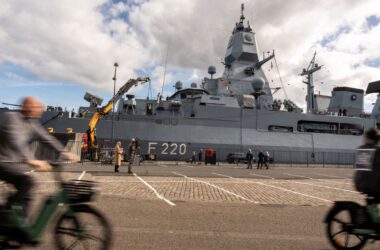Estonian documents reveal a covert Russian installation in Kaliningrad that is blamed for widespread GPS interference over the Baltic Sea, prompting concern among Poland and its neighboring countries.
Russian Base: Source of GPS Disruptions
Estonian portal Delfi accessed secret Russian papers indicating a military complex built in Pionier, Kaliningrad region, responsible for jamming GPS signals above the Baltic Sea. The facility is part of the strategic Toboł network focused on electronic warfare, combining surveillance, defense and command systems. Its dual role is to shield Russian satellite communications and navigation from potential NATO attacks while degrading the intelligence operations of alliance member states. Construction began in 2009, and other similar complexes exist in Serpukhov near Moscow, Penza, Cheboksary, and Ulan‑Ude in Eastern Siberia close to Lake Baikal. The interference also targets Starlink’s satellite telecoms.
Poland and Baltic Countries Face GPS Interference
For an extended period, Polish media have reported GPS disruptions, especially along the north coast. Incidents include private drones veering off course or losing connection, attributed to deliberate signal jamming and protocol interference used by drone controllers. The disturbances affect northern Poland, including coastal areas. In June, a Ryanair flight had to divert from Bydgoszcz to Poznań due to GPS issues, and other Baltic states have noted similar problems. Finnish Transport Agency Traficom reported increased GPS disturbances over the Gulf of Finland, and Lithuanian transport minister said jamming impacted air and sea traffic near Klaipėda port. These events underscore growing concerns over navigation reliability in the region.
Donald Tusk Calls for Baltic Sea Summits on Security
On August 8, Donald Tusk, visiting a wind farm in Łeby, declared Poland’s intent to lead security initiatives in the Baltic Sea. He highlighted strategic investments in the area and reminded of GPS jamming challenges. Tusk emphasized Poland’s investment in Baltic security and its coordination of regional actions. He noted Warsaw’s involvement of NATO and Baltic partners, and announced a summit of the Baltic Sea States Council—where Poland currently presides—to address security issues related to Polish maritime and aviation interests.










